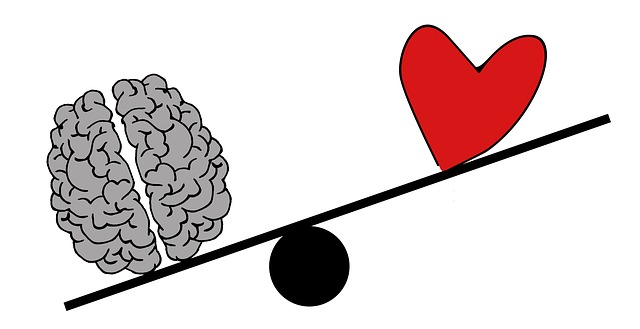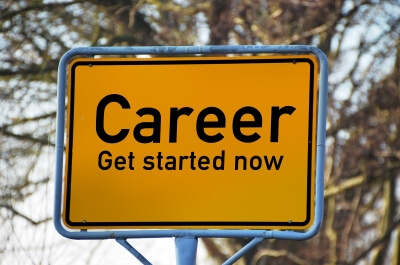What is a career?
A career is the overall professional value you see yourself adding to the world over the course of your working life. If you choose your best career early, it can serve you well in future. Your talents, passion, grades and desired rewards are some of the things to consider when deciding on your career. See more in this article.
What is the difference between a career and job?
A career is the entire path and future direction you want your professional life to take. It is a long-term professional goal and the contribution you make during your working life or a significant part of it. You can have a career in media, education, medicine, engineering and so on.
While a job is a specific role or set of responsibilities assigned to you to deliver certain results over a moment in time. A job is therefore shorter in term when compared to a career. Also, a job may or may not be related to your career.
What then is a career made of?
A career is often made up of a series of interconnected jobs or job roles. For example, a career in project management may take someone through jobs such as a project support officer, project co-ordinator, assistant project manager and eventually project manager. Clearly these jobs are interconnected and contribute to the end goal of becoming a project manager.
However, not all the jobs and roles you take in your working life will align with your preferred career, and that’s ok. Think about someone who is training to become a teacher but takes a temporary job in fashion retail during their undergraduate studies. The retail job does not align with their teaching career goal and may only be a short-term measure to help them raise much-needed income. However, if they chose to take a tutoring job instead, then that would most certainly contribute towards their long-term career goal of becoming a teacher.
Should I take a job outside my career?

Yes, in the short term that may be ok. Because every job you take has the potential to give you some transferable skills you can use in your preferred career. For example, the fashion retail job might help the trainee teacher to improve on their communication skills (and fashion sense), all of which may come handy when they start teaching.
Besides gaining transferable skills, there are other reasons why you may want to consider taking a job outside your preferred career. As you can imagine it takes some time to build a career and earn well from it. It is therefore perfectly ok to take a job outside your career path in order to help meet your core and immediate needs e.g. rent etc. However, while doing such a job it is advisable to have a plan and to take steps towards your preferred career. Avoid being too comfortable or disheartened.
When do you choose your best career?

A few people will know quite early on in life what they want to do with their professional lives. Think of Justin Bieber who had his first hit song at 13 years old, Sir Lewis Hamilton who was only 8 years old at his first junior karting race, and Michael Jackson who debuted his singing career with the Jackson Five at the most tender age of 5!
But, most of us do not get to know that early!
Most people decide on their careers in early adulthood, possibly during their teenage or high school years. It’s also becoming increasingly common for people to choose or change careers at midlife or at some point in their working life. You may have noticed a great amount of career changes following the Covid-19 pandemic. It may be that people have had a chance to reflect on their professional contribution and the impact their careers have on their lives and others.
It really doesn’t matter when you choose your career but there is no time like the present when it comes to deciding on your professional goals.
How do you choose a career in a world full of options?

Start by looking within you and around you!
Gone are the days when parents/guardians used to choose careers for their children – though in some families and cultures this may still be the norm. Luckily for most of us, choosing what we are going to do with our professional lives is a choice we can make for ourselves.
What to consider when choosing your best career
A career is life-long and if chosen right, it can make you a comfortable living and be a huge source of personal satisfaction. What then should you consider when making this very important life decision?
1. Consider your talents
Talent is the natural ability to do something and really excel at it (perhaps with a little bit of practice). Your talents are an important factor to consider when choosing your career. For some, these have been known to determine their careers. Sportspeople and musicians are examples of people who make exceptional careers out of what they are naturally great at.

Although it can sometimes feel like certain talents pre-determine our lives and careers, just remember that you can still choose not to launch a career based on your talent. I have a friend who is a great singer but she chose to go into technology instead and only sings whenever she wants. Bottom line is – your career, your choice.
2. Consider what you’re passionate about
Consider making a career out of what you are most interested in or passionate about. Pursuing a career out of your interests and passions will not only help you make a living, but it will also leave you feeling driven and deeply satisfied with what you do. You’ll probably agree that most of the people choosing careers such as nursing or social work have a profound desire and passion for helping vulnerable people. It is what keeps them motivated despite the challenging nature of their careers.

Jeff Bezos, founder and executive chairman of Amazon, once told a group of young adults to find their calling, not a career. But whether we choose to call it a career or calling, pursuing what you most care about is one of the most stable bases for your professional goals. Lack of passion in what people do is probably one of the biggest reasons why so many are unhappy and demotivated at work, and why some opt to change their careers midway.
3. Consider the impact your environment has on your career choice
Your immediate external environment consists of your family, friends, values, culture, traditions, among other things. And whether we like it or not, these factors tend to influence our career choices both directly and indirectly. I bet you know of families that are predominantly teachers, doctors, lawyers, musicians, chefs, etc. You may also be aware of successful family businesses that have been handed down several generations.
Naturally, some people will love the idea of stepping into a family empire, but this might cause others to feel denied the choice to do what they really want to do with their professional lives.

Whether or not you have a family legacy depending on you, consider chatting through your career options with those you love and trust. Then weigh up their perspectives but be sure to be the one who makes the final decision.
Other environmental factors such geographical location can influence career choices – for example those living in fishing communities may consider fishing. Elsewhere, culture or tradition will still somewhat dictate what people can or cannot do with their lives. And although we are now living in a slightly more equal society there are still a considerable number of people who make choices based on unconscious biases that exist (or existed) in their society. For example, some women are still not free to work or to choose careers in certain fields.

If your career choice feels constricted by your environment, try to remember there is a bigger world out there. More and more people are choosing to break away from tradition to do that which they really want to, irrespective of what their loved ones or society might say. And that is perfectly ok.
Besides your external environment, consider choosing a career that goes well with your internal environment – who you are, your values and beliefs.
4. Consider your grades or skill set
Besides your talents and passion, you may find your career choice being determined by your academic performance or the grades you got in school. For instance, those desiring a degree in engineering will need to do well in sciences while those intending to be authors will need to excel in languages and arts. Without good grades in the right core subjects, you may find it difficult to proceed to higher education for your desired field of study and career.

Although choosing a career based on grades seems like a rational thing to do, it would be unwise to base your decision solely on grades. Mainly because our academic performance on paper does not always tell the whole story of what we are capable of. Think of the unfortunate academic grading of those young people who missed out on final exams at the height of Covid-19.
Also, just because you have the grades to take a certain course (such as engineering), it doesn’t mean you should. If it is not the right choice for you, it can end up being a huge waste of your time and money. Equally, just because you haven’t got the grades for your desired area of study, it doesn’t mean that you should give up – there are foundation and bridge courses that can help you improve your grades and redirect you towards your preferred career.
If you are doing a career change, consider what experience and skill set you already have that can they help you get into the new career you want. Have you also got the right soft skills? Do you know how to make an impression to those in your prospective career?
5. Consider current and future trends
A crystal ball would be handy in knowing for sure which current trends would make worthwhile careers in the future! In its absence, consider doing thorough research on what might pay off in the future and develop yourself in this. With a bit of luck and lots of research, you might be able to pick an extremely rewarding career. Consider that currently hot careers such as mobile app development and influencing were only at inception stage a decade ago… Do your homework.

It goes without saying that technology is hot right now and is likely to be for many years to come. With the wide range of work and lucrative pay available in the industry, a career in technology is currently a popular choice. But it may not be right for everyone.
Although it is quite common for people to decide on a career based on trends, some people will feel that this approach is too much of a gamble for something as important as their careers. Therefore, only you can decide how much risk you are willing to take. If you are not much of a risk taker, you may be better of considering a traditionally ‘safe’ career. Either way, don’t forget to analyse political, social, economic, cultural and technological developments which have a huge impact on career trends. You’ll agree Brexit has had quite an impact on jobs in the UK and beyond.
6. Consider the rewards you want from your career
For some people, the potential rewards from a future career are a key determining factor. Consider which types and levels of reward you would want, both financial and non-financial.
Those motivated primarily by financial rewards will choose careers known to offer higher pay and other financial perks, regardless of the level effort required. To them it’s all about the money. And there is nothing wrong with that. Most of us want to make a living, so while at it we might as well make it a good one.

Others will prioritise non-financial rewards such as job satisfaction, enjoying a good challenge and the ability to make a difference. The desire for these types of non-financial rewards cannot be underestimated. According to Maslow’s hierarchy of needs, accomplishment and self-actualisation are some of the highest levels of human need, not money.
Consider which rewards mean more to you and choose a career that will enable you to enjoy them. A good amount of both financial and non-financial rewards is ideal, but that can be a tricky balance for some people to achieve.
7. Consider your level of ambition
Consider how ambitious you really are (or want to be with your career aspirations). Some careers are propelled by raw ambition and sheer competitiveness. Put simply, these careers are cutthroat and it helps to think through whether you have what it takes and whether that kind of work environment interests you. If you have watched The Wolf of Wall Street then you may have some idea.

But ambition is not always a horrid thing. In the right measure, it is healthy and beneficial to all careers. It enables you not only to get into your preferred career, but also to grow in it. With ambition, there are no comfort zones or giving up. Where some may see difficulties, you will see opportunities and will not stop till you achieve your goals. Very inspirational is the series Self-Made based on the life of Madam CJ Walker. She was born into slavery but went on to beat the odds to become a successful entrepreneur, philanthropist, and activist.
8. Consider the practicality of getting into your career
Be ambitious but realistic. Consider which career might be most practical, easier or natural for you to get into. However, be careful that the ease of getting into something is not all you base your career decision on.
To be clear, if too good an opportunity were to open up to you without much effort and you think it can provide you with a worthwhile career, do consider it against all your other options/prospects. Say you become eligible for a lucrative apprenticeship in Finance – should you take it? Finance perhaps isn’t your first career choice, but all things considered you may decide to take it because you have a healthy interest in finance and the brain for it, it promises good rewards and you believe this may be your best bet in light of your personal circumstances.
Also, consider what your personality type and personal traits are. You might find it easier or natural to go into careers that complement who you are. For example, extroverts might find that working and interacting directly with people suits them better, and so on. Consider taking a personality test and base your career decision on solid understanding of who you really are – your strengths, weaknesses, abilities, interests etc.
9. Consider the risk of accidental careers
Sometimes people find they have ‘accidentally’ fallen into a certain career or feel they have no other choice but to take a certain career path. For example, someone may start volunteering at a charitable organisation and end up gathering enough experience and passion for a successful career in international development. This by all means is not a bad outcome.

Unfortunately, things don’t always work out this way for all. Some people who have not very deliberate in directing their careers might find they stayed too long in a job that does not offer them the career prospects they want. Or they may find that they have only had a series of different jobs that do not necessarily offer them a career. This is why it is important to take charge of your professional life instead of waiting for things to work themselves out.
Having said that, it is important to acknowledge that sometimes life leaves people with little choice but what it throws at them. You will find that people tend to take whatever careers become available to them when they are in difficult circumstances – such as when people lack opportunities for education or jobs, live in discriminatory environments, lose their jobs due to corporate downsizing, and so on.
10. Remember there will be factors beyond your control
When you have decided on your career, move on to make a career plan and take steps towards it. However, remember that even the best laid plans can sometimes go haywire. This is because there will be things in life you will not be able to control. When you think about it none of us could have anticipated or planned for the immense disruption that has happened to our personal and professional lives due to Covid-19.

With that in mind, consider assessing the different risks that could spoil your career plans and plan how you will mitigate each one of them should they happen. Most importantly bear in mind that you will need to be flexible and adaptable in the face of change, which is likely to happen a lot in the course of your personal and professional lives.
In conclusion
Choosing your career should not be left to chance but should be done deliberately and carefully. Some people will be able to do this early in life and others a little later in life. There is not a right or wrong time to do it, but best to do it sooner rather than later.
Hopefully this list of things to consider will help you get started in choosing the best career for you – one that complements your personality, abilities, values, passion and equally rewards you.
What other things would you consider, or did you consider, when choosing your career?

